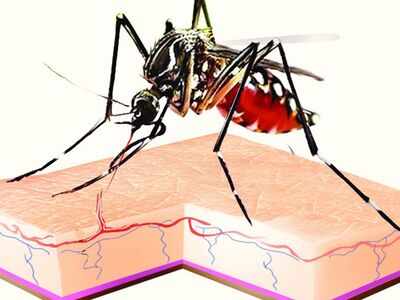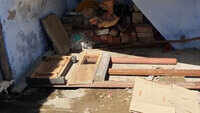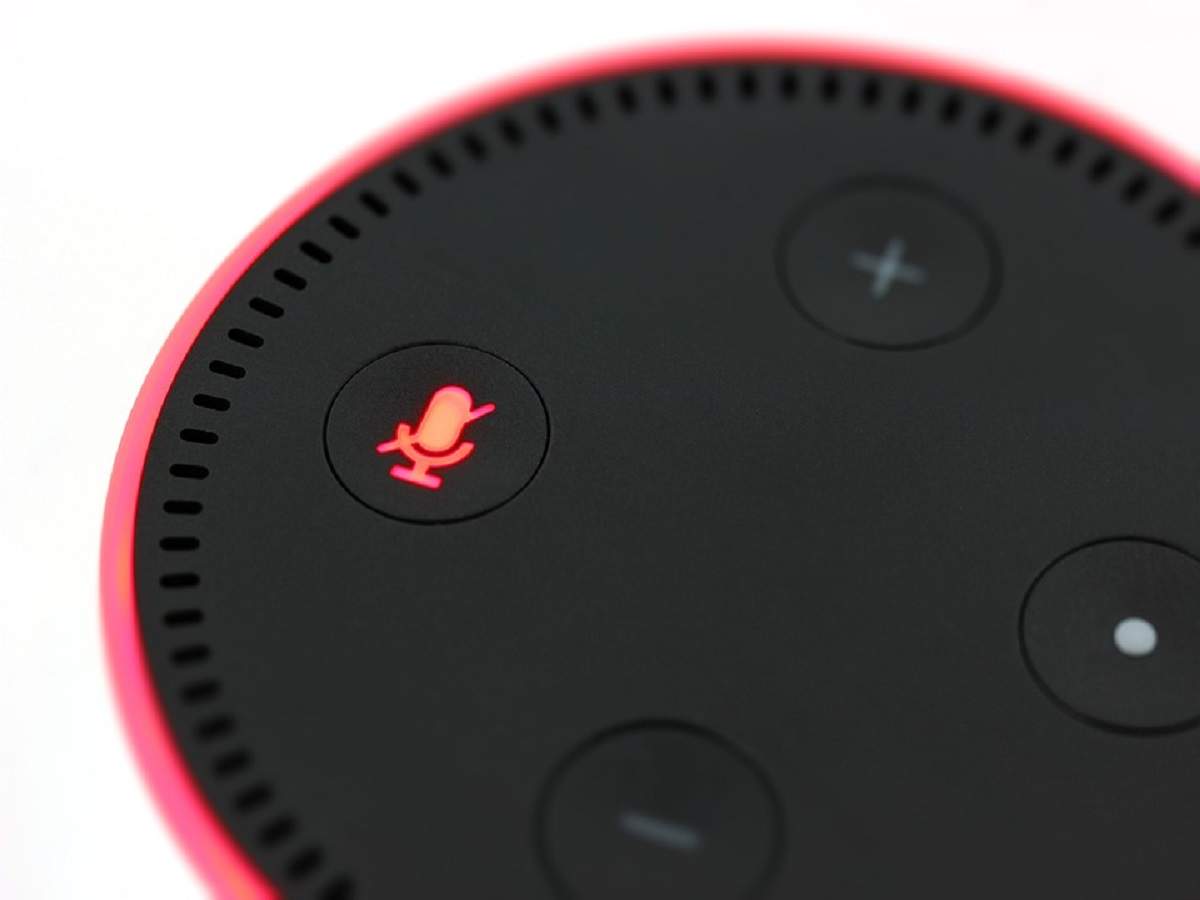
CHENNAI: The city corporation is neck deep in the battle against the raging Covid-19 pandemic, but it has also quietly started preparations for dengue prevention, given that the city is experiencing some rain.
July is when cases of dengue start cropping up in the city, say Greater Chennai Corporation officials. “With a majority of the people staying home due to the lockdown, the spread of dengue may be higher,” said a senior official.
Some of the Domestic Breeding Check (DBC) workers, who are currently engaged in disinfectant spraying in Covid-19 affected streets and areas, will be shifted to their regular programme, said officials. These workers usually make doorto-door visits and check for Aedes mosquito breeding.
Prevention of dengue involves workers checking for stagnant water, especially in open vessels, drums or tanks or open pipelines. Apart from warning people and levying fines, workers also spray larvicide in machines, which incidentally are now used for disinfectant spraying as part of the battle against Covid-19.
As on date, around 2,100 DBC workers employed by the corporation to carry out these programmes have all been redirected for Covid-19 prevention work.
Usually, the corporation records, starting April, around 30 cases of dengue that peak to around 100 in the September-November period. As Covid-19 rages, prevention of dengue assumes importance as both infections have similar symptoms of fever and body pain, said a corpotation official. This could cause confusion among the medical fraternity. “Further, dengue attacks the immune system by decreasing the platelet count of the patient. So if the patient gets Covid-19 and dengue, chances of survival will be very less,” the official said.
Covid-19 is detected by the RT-PCR test, while the ELISA test is done to check of dengue. B Dhanraj, retired chief vector control officer of the corporation, told TOI that the civic body should employ additional DBC workers as 100% of the staff had been deployed for Covid work.
July is when cases of dengue start cropping up in the city, say Greater Chennai Corporation officials. “With a majority of the people staying home due to the lockdown, the spread of dengue may be higher,” said a senior official.
Some of the Domestic Breeding Check (DBC) workers, who are currently engaged in disinfectant spraying in Covid-19 affected streets and areas, will be shifted to their regular programme, said officials. These workers usually make doorto-door visits and check for Aedes mosquito breeding.
Prevention of dengue involves workers checking for stagnant water, especially in open vessels, drums or tanks or open pipelines. Apart from warning people and levying fines, workers also spray larvicide in machines, which incidentally are now used for disinfectant spraying as part of the battle against Covid-19.
As on date, around 2,100 DBC workers employed by the corporation to carry out these programmes have all been redirected for Covid-19 prevention work.
Usually, the corporation records, starting April, around 30 cases of dengue that peak to around 100 in the September-November period. As Covid-19 rages, prevention of dengue assumes importance as both infections have similar symptoms of fever and body pain, said a corpotation official. This could cause confusion among the medical fraternity. “Further, dengue attacks the immune system by decreasing the platelet count of the patient. So if the patient gets Covid-19 and dengue, chances of survival will be very less,” the official said.
Covid-19 is detected by the RT-PCR test, while the ELISA test is done to check of dengue. B Dhanraj, retired chief vector control officer of the corporation, told TOI that the civic body should employ additional DBC workers as 100% of the staff had been deployed for Covid work.

Coronavirus outbreak
Trending Topics
LATEST VIDEOS
City
 Good news! ICMR aims to launch indigenous Covid-19 vaccine by August 15
Good news! ICMR aims to launch indigenous Covid-19 vaccine by August 15  MP: Jyotiraditya Scindia addresses party workers through a virtual rally to mark 100 days of Shivraj Singh Chouhan govt
MP: Jyotiraditya Scindia addresses party workers through a virtual rally to mark 100 days of Shivraj Singh Chouhan govt  UP: Six men bludgeon woman to death after failed rape attempt, arrested by Etah police
UP: Six men bludgeon woman to death after failed rape attempt, arrested by Etah police  Massive border check on DND flyway from Noida to Delhi after 8 cops killed in encounter with criminals near Kanpur
Massive border check on DND flyway from Noida to Delhi after 8 cops killed in encounter with criminals near Kanpur
More from TOI
Navbharat Times
Featured Today in Travel
Get the app





